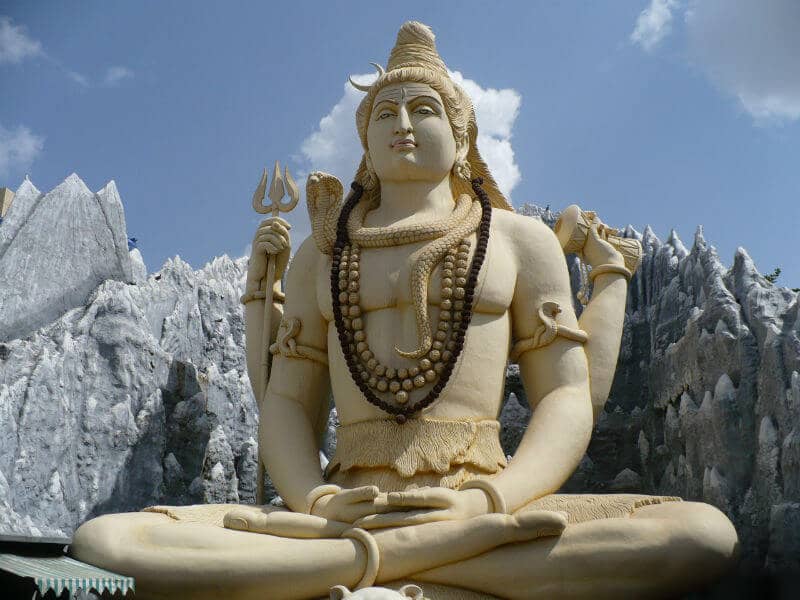Many vegetarians think themselves superior to others because they do not eat meat. I appreciate the advantages of a meatless diet, but what if being a vegetarian leads to pride?
The Gaudiya Vaisnava object to meat eating because they consider animal slaughter a merciless act. In the language of the Bhagavatam, it is said that suna--mercilessness or violence to the innocent--was prohibited by Raja Pariksit and that wherever this kind of activity takes place, Kali-yuga, the age of hypocrisy, flourishes. To the extent that one is involved in merciless acts, one will be checked from making significant spiritual progress.
Devotees, however, have no license for pride whatsoever. If a devotee becomes proud of being a vegetarian, he is a fool, for being a genuine devotee involves much more than vegetarianism. I have recently returned to college after spending a number of years in the brahmacari asrama and am writing ...about the kinds of music I should listen to. Does hearing about "mundane" or "worldly" love bar one from understanding the divine love of Radha and Krsna? If you are going to listen to nondevotional music at all, you should choose something that you find at least remotely compatible with your practice and or ideal. For example, music that causes you to be reflective and peaceful or lyrics that speak to you of your ideal. It is difficult to avoid hearing about mundane love in this world. However, because worldly love is a reflection of spiritual love, if a person who is under the guidance of guru and scripture thinks of it in this way, he or she may learn something about the nature of actual spiritual love.
The presence of God within the Deity is to a large extent dependent on the devotion of the servants of the Deity. It is the power of their love that causes God to descend in Deity form and accept worship. Sometimes even when the devotion of the Deity's servants is strong, we find that the Deity's service is interrupted, or worse still, offenders destroy the Deity. In such instances God teaches us that while he is symbolically represented in his Deity form and fully present therein, his existence is not limited to this symbolic representation. Deity worship (arcanam) is particularly important for neophyte devotees, arcayam eva haraye pujam yah sraddhayehate . . . sa bhaktah prakrtah smrtah. [Some] devotees have a conception of divinity that is tainted by material notions (prakrtah bhakta). Thus in rare instances, to help neophytes transcend their limited material notions about divinity, the Deity allows itself to be destroyed. At that time the devotion of neophytes, as well as their understanding of the philosophical underpinning of their practice, is tested in order that they might advance. The Deity, while appearing to be destroyed, withdraws into the hearts of his pure devotees, and when such devotees see fit, they again establish the Deity's service. God's ways are mysterious, as are those of his devotees in whose hearts he dwells. God is more substantially present in the hearts of his pure devotees than he is in his manifest Deity form (arca vigraha). I find brahmanas to be cunning, selfish, and mean. Even in modern times the brahmanas in our village treat ordinary people very disrespectfully and use disgraceful tactics to live at the cost of the poor. Do you have any comments on this? It is mentioned in scripture that one of the symptoms of the present age of quarrel and hypocrisy is the corruption of the brahmana class. The Padma Purana speaks about this in very harsh terms:
"In Kali-yuga all the varnas are degraded. The brahmanas are especially degraded being devoid of Vedic knowledge and sacrifice. Giving up the five sacrifices mentioned in the Vedas as well as brahminical behavior and consciousness, they engage in inferior activities. They collect charity to satisfy their unlimited appetite for sense enjoyment and are characterized by the qualities of lust and cruelty. Unholy in deed and thought, they take pleasure in malice and envy, and as professional thieves, they blaspheme the Vedas, drink liquor, and exploit women. They also accept sinful means of maintaining their lives and sometimes pose as sadhus by dressing in red cloth and wearing long hair and beards. In this way, the wretched so-called brahmanas of Kali-yuga accept a dharma that is lower than that of sudras."In Srimad-Bhagavatam it is described that at the onset of Kali-yuga the son of a brahmana inappropriately cursed a great king who was a selfless devotee. Thus the age began. We should try to serve God in the company of selfless devotees, regardless of what section of society they come from. We should not be intimidated by pseudo-brahmanas who have no respect for others and in the name of worship use the Deity in the temple as a business to get money so they can live comfortably and fill their stomachs. However, although pseudo-brahmanas predominate in this age, this does not mean that there aren't actual brahmanas. They can be identified by their qualities, such as truthfulness, cleanliness, austerity, and, above all, devotion to God.

